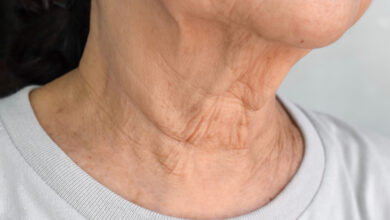Comprehensive Guide to Effective Scabies Treatment: A Proven Approach
Introduction
Welcome to our in-depth guide on scabies treatment, where we share valuable insights and proven methods to effectively address this common skin condition. At [Your Brand], we understand the impact of scabies on one’s well-being, and we’re committed to providing comprehensive solutions for a swift recovery.
Understanding Scabies
What is Scabies?
Scabies is a highly contagious skin infestation caused by the Sarcoptes scabiei mite. These microscopic pests burrow into the skin, causing intense itching and discomfort. It’s crucial to identify the symptoms early on to prevent the spread of scabies to others.
Recognizing Scabies Symptoms
Early detection is key in managing scabies. Look out for symptoms such as:
- Intense itching: Particularly at night.
- Rash: Characterized by small, red bumps.
- Tracks or burrows: Thin, grayish-white lines on the skin.
Effective Scabies Treatment Options
Topical Medications
Permethrin Cream
One of the most prescribed treatments for scabies is permethrin cream, a topical medication that effectively kills the mites. Follow the application instructions carefully for optimal results.
Ivermectin
In severe cases, oral medication like Ivermectin Order Online may be recommended by healthcare professionals. This powerful antiparasitic medication works to eliminate the mites from within.
Home Remedies
Tea Tree Oil
Known for its natural antiseptic properties, tea tree oil can be applied topically to soothe the skin and potentially reduce mite activity.
Neem Oil
Rich in antimicrobial properties, neem oil is another effective home remedy. Applying neem oil to affected areas may help alleviate itching and promote healing.
Maintaining Cleanliness
Frequent Laundering
To prevent the spread of scabies, ensure all clothing, bedding, and personal items are regularly laundered in hot water and dried on high heat.
Thorough Cleaning of Living Spaces
Mites can survive on surfaces, so it’s crucial to thoroughly clean and vacuum living spaces to eliminate any potential sources of infestation.
Preventive Measures
Isolation and Avoidance
If someone in your household has scabies, practice isolation and avoid direct skin-to-skin contact until the infestation is successfully treated.
Education on Hygiene Practices
Educate yourself and others on the importance of maintaining good hygiene practices to reduce the risk of scabies infestations.
Seeking Professional Guidance
Consulting a Dermatologist
For an accurate diagnosis and tailored treatment plan, consult a dermatologist. Professional guidance ensures an effective and swift resolution of scabies.
Conclusion
In conclusion, scabies is a treatable condition, and with the right approach, you can alleviate symptoms and prevent its spread. Whether opting for prescribed medications or exploring home remedies, consistency and thoroughness are key to successful treatment.



